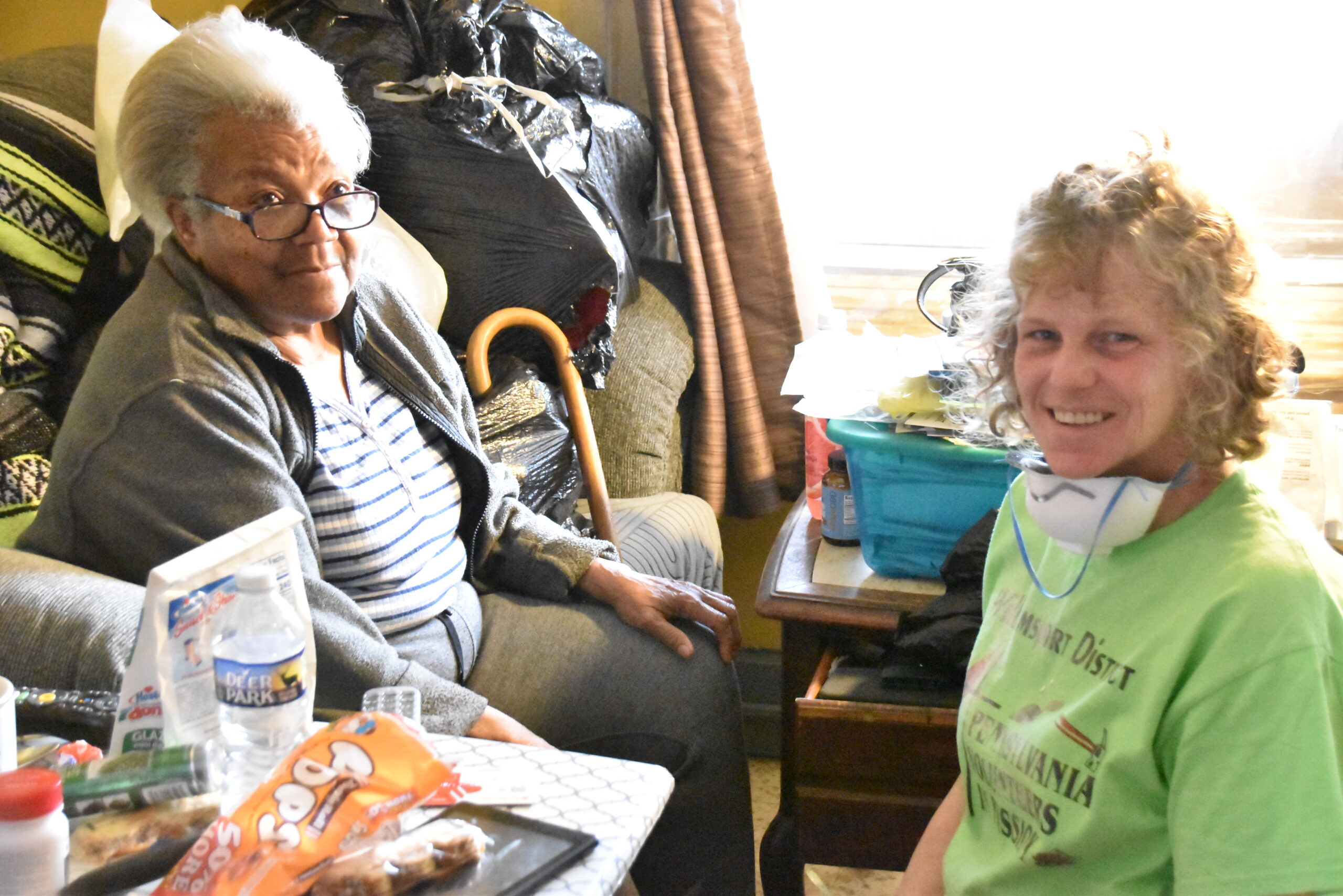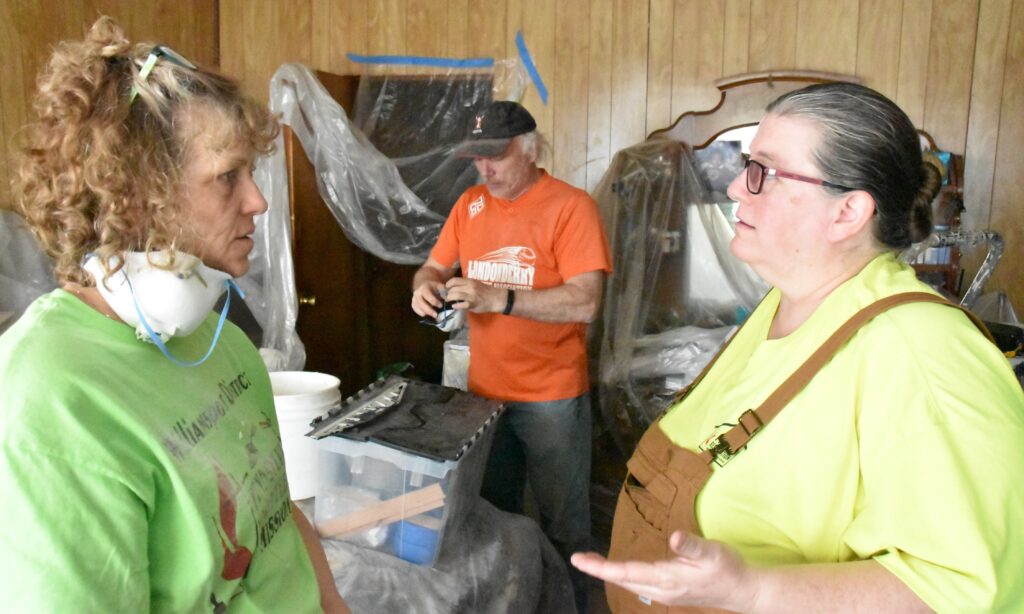 (From left) Darby homeowner Thelma Bruton and Jean McCaslin, a VIM volunteer from Williamsport, Pa. John Coleman photos
(From left) Darby homeowner Thelma Bruton and Jean McCaslin, a VIM volunteer from Williamsport, Pa. John Coleman photos
Thelma Bruton has lived in her family’s modest, two-story brick home in Darby, Pa., for over seven decades, since she was a year old. But for over three years she slept downstairs, away from the hole that Hurricane Isaias ripped into her roof in August 2020 and away from the racoons she could hear noisily invading her home upstairs. The hurricane’s winds and flooding devastated parts of Darby and other nearby communities.

Bruton’s appeal for funds to repair her roof was initially refused by FEMA (the Federal Emergency Management Administration). She thinks it was because the photograph her granddaughter submitted showed the ceiling’s hole covered rather than exposed. But after a second try, she was approved.
The roof was finally repaired, and a team of eight United Methodist Volunteers in Mission from the Altoona District of the Susquehanna Conference in central Pennsylvania came in early in April to repair her damaged ceilings and walls. The Eastern Pennsylvania Conference’s Project Restoration requested and hosted them.
“After what I went through, I am so happy to see them here,” she said smiling, while gratefully watching them repair her ceilings. “I can sleep upstairs now and not have to worry about animals getting in.”
United Methodist Connection in action
For two years, Project Restoration has been a part of the United Methodist Connection in action. They have received generous donations from local churches and several grants from UMCOR (United Methodist Committee on Relief), plus welcomed and coordinated dozens of VIM teams from the Susquehanna, Virginia and other conferences.
Those visiting teams, along with local church volunteers and other groups, have all come to repair homes damaged by two hurricanes: Isaias in 2020 and Ida one year later. And along with their tools, they have brought gifts of compassion and friendship to share those they help.

“I’ve been doing mission work for about eight years,” said Jean McCaslin, a member of First UMC in Williamsport, Pa. “I love it. I love serving the Lord and this is a great way to do it.”
She owns a construction business. “So, I’m able to bring some skills to the task.” And this summer she will return to Ecuador to help build a school. “I go where God leads me.”
During their week here, April 7-12, the Altoona District team stayed where most visiting teams working in the Darby area have stayed: at Drexel Hill United Methodist Church. The church has offered convenient lodging and hospitality to nearly a dozen teams since April 2023, including beds and a kitchen where teams prepare their own meals. In addition, EPA’s own disaster response trailer is parked in the church lot, with tools and equipment available if needed.
‘We get to serve the people who come to serve’
“It’s really a beautiful feeling for us,” said the Rev. Russell Atkinson, host pastor, who chairs the Eastern PA Conference’s VIM program. He and church members prepare the lodging spaces and welcome the teams when they arrive, typically on Sunday evenings. “We get to be part of this ministry. We get to serve the people who come to serve.”
Project Restoration Director Denise Shelton is grateful for the people who come to serve. “We are so thankful for and blessed by the volunteers who give of their time and talent so that survivors can move forward in their recovery.”
All skill levels are needed for the work involved, she said. “Our Construction Project Manager Daniel Jeffers is wonderful at guiding volunteers to complete projects that they may not feel comfortable attempting on their own, while stepping back to let more skilled volunteers do what they do best.”
But before the work begins, Project Restoration’s Disaster Case Managers help survivors access needed resources and follow proper procedures to get help. They try to ensure clear communication between everyone involved and that survivors have a voice in recovery decisions. “This is their recovery; we are there to support them.”
There is still much work to be done, said Shelton. “We would love to hear from individuals and groups who are available to volunteer for a week or just a day—whether they are in our area or coming from a distance. All are welcome.”
